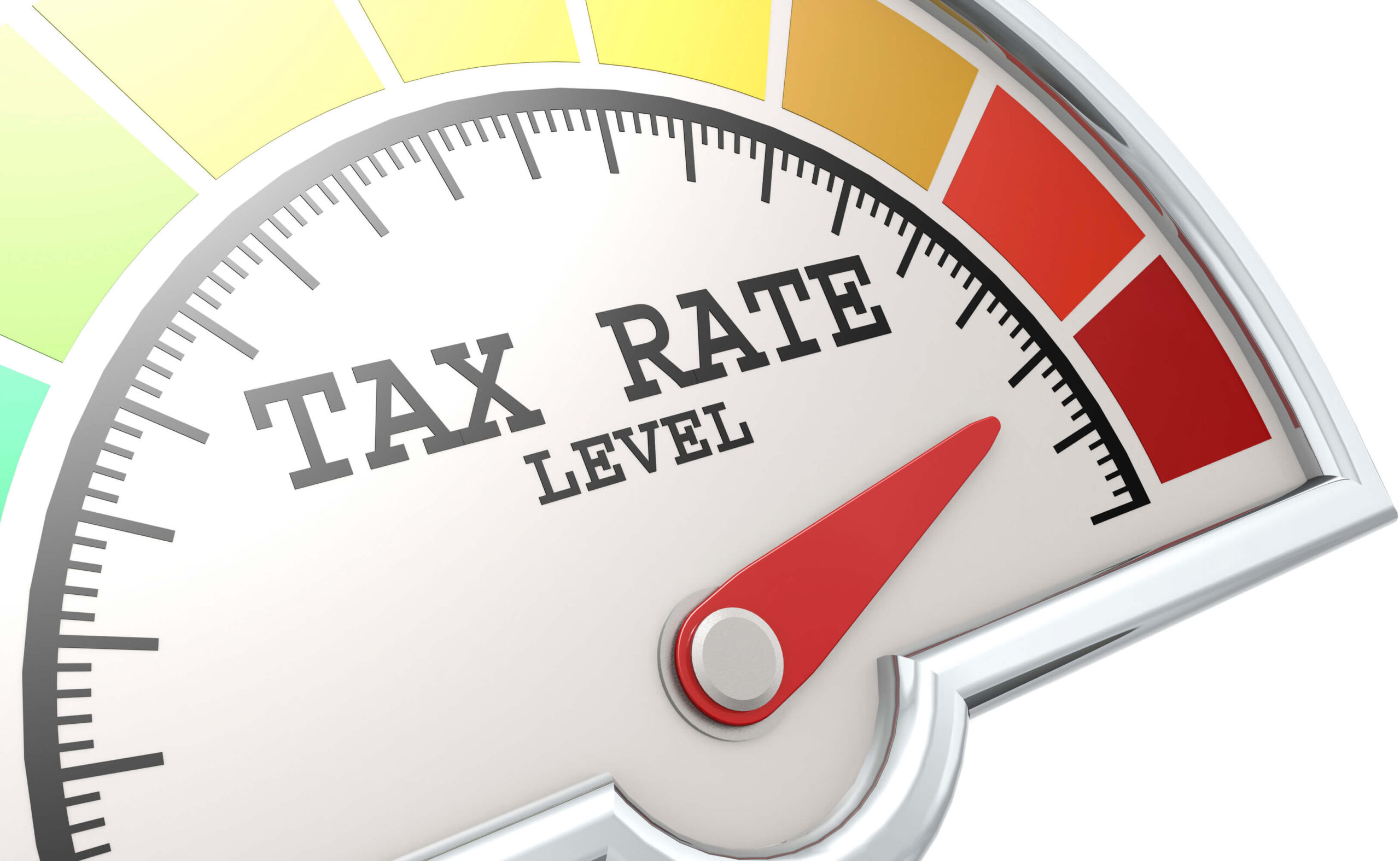This small business cash extraction guide is all about optimising all possible tax breaks that are currently made available by the Irish Revenue. Tax efficiency in extracting cash from an Irish registered SME is something that requires specialist advice that is specific to individual business owners, essential to which is using a qualified Pension Specialist and Tax Advisor to establish an appropriate pension planning structure and a specialist qualified Tax Advisor, for the disposal of business assets and or on full business exit.
In Ireland, there are various types of taxation, that can affect business cash extraction, but the 4 forms of taxation, from which the greatest relief can generally be achieved are:
Corporation Tax, Income Tax, Capital Gains Tax & The Closed Company Surcharge
- Corporation Tax is the tax charged on trading net profits, the current rate for Irish SMEs is 12.5%
- Income Tax is payable on earnings and dividends, at a current rate of up to 40%
- Capital Gains Tax is tax incurred on the disposal of a business asset, the current rate is 33%.
- Closed Company Surcharge is a 20% tax on interest-based income that is not distributed within 18 months.
Other taxes to be aware of:
Benefit in Kind, tax on the provision of company benefits such as a company car, health Insurance payments, or gym membership etc, taxed at a rate up to 33%.
Early-Stage Business
Avoiding both Corporation and Income Tax through a Pension Plan is the first step in extracting cash from a business, with the benefits of company contributions counting as a trading expense, but also tax-free investment growth, plus a tax-free lump sum payment come pension benefit drawdown.
Late-Stage Business
Most Irish business owners will also have some knowledge of the Capital Gains Tax reliefs commonly known as “Entrepreneur Relief” and “Retirement Relief” where the disposal of their business is made to a third party. What’s less well understood, however, is how they can all be optimised.
In addition, certain companies may benefit by setting up a “Holding Company” to gain tax efficiencies, minimise risk or prepare for sale or succession. There are clear benefits to creating a holding company as it can be used to protect profits or to separate assets, such as a business premises, from the main trading company.
(1) Pension Planning
In short, a company owner can invest company profits in a Pension Plan without any BIK implications to a maximum pension standard fund threshold of 2M (SFT), increasing to 2.8M over the coming years.
As cash held in a business is not eligible for CGT relief, on disposal of business assets, the most tax-effective approach prior to selling off your business is always to use company cash to fund a Pension Plan.
Notably, you don’t have to physically retire from the business under an Executive Pension Plan (Master Trust) once you have reached the specified normal retirement age (minimum age 60), but under a Personal Retirement Savings Account (PRSA) you will need to have fully retired before being permitted to drawdown the pension plans benefits.
For company owners, a Master Trust also relates its maximum permissible contribution levels to salary and company service, so depending on personal circumstances, it should always be considered alongside a PRSA which does not restrict contribution amount or frequency, where the SFT applies.
(2) Bespoke Corporate Investment Bonds
Irish companies that are “close” companies are liable to pay a 20% surcharge each year on any investment income (or deposit income) that is not distributed. A “close” company is a business controlled by 5 or fewer participators, which applies to the majority of small Irish businesses.
Many company owners build up reserves via a company Deposit Account and might not even be aware of the Surcharge, it may simply just get paid through your accountant, rather than being paid out (not distributed to shareholders within 18 months of the accounting period) in which the income was earned.
However, a very efficient way of avoiding this surcharge is to place the money in a bespoke corporate investment using guaranteed structured deposit rates, or mutual funds, or even a combination of both.
Corporate Investment Bonds allow you to control the investment terms as well as the underlying assets through the use of higher deposit rates and or a choice of mutual fund offering to suit you. Not only does the use of these vehicles avoid the surcharge, but companies also benefit from a reduced exit tax. Only 25% versus 41% that you pay on personal monies. Your investment can grow in a tax-free environment for up to 8 years, before the exit tax is payable, allowing for cumulative growth.
Note: Using a Corporate Investment Bond allows your money to grow without the Surcharge. However, if you have already accumulated this Investment income, placing these monies into a Corporate Investment Bond after the fact, will not mitigate the original surcharge liability.
(3) Business Sale / Early Asset Disposal
CGT Retirement Relief
Under the current rules, there is full Capital Gains Tax relief on disposals of qualifying assets up to a value of €750,000 where the disposal is made between ages of 55 and 65.
The qualifying assets could, for example, include business assets used in a trade (such as premises and equipment, as well as goodwill) or family company shares.
It is first worth noting that to qualify for relief the individual does not have to retire from the business. An individual could sell ‘qualifying assets’ and then continue to be actively involved in the business.
Another misconception is that the individual must dispose of the entire business, however, they can hold onto some of the shares of the business should they wish to do so.
Two types of “retirement” relief apply if you are aged 55 or more and you dispose of a business (qualifying assets):
(a) If you dispose of your business to your child, the gain is exempt. There is no limit on the value of business assets that may be passed to your child in this way.
“Child” includes an adopted child, a favourite nephew or niece, and a foster child. From 1 January 2014, in respect of disposals by persons aged 66 or over, the maximum value that can be passed tax-free to children is €3,000,000.
(b) If you dispose of your business to any person other than a child within (a), the gain is exempt if the proceeds do not exceed €750,000.
If the disposal proceeds exceed €750,000, marginal relief ensures the CGT may not exceed half the difference between €750,000 and the proceeds of the sale.
This is a lifetime limit per individual. From 1 January 2014, in respect of disposals by persons aged 66 or over, the €750,000 limit is reduced to €500,000.
These two reliefs operate independently of each other. Therefore, if you had two separate businesses, you could claim relief under (a) on the disposal of the first business and under (b) on the disposal of the second business.
Note: For more detailed information, please visit this revenue guide.
(4) Entrepreneur CGT Relief
This is a Capital Gains Tax relief, which can reduce the rate of CGT to 10% on the disposal of a business or if certain criteria are met. The relief currently only applies to the first €1 million of gains. The maximum tax relief is therefore €230,000 per individual. The €1 million is a lifetime limit.
Note: For more detailed information, please visit this revenue guide.
Interaction Between Entrepreneur Relief and Retirement Relief
Retirement Relief (RR) applies to a sale or transfer and any gain being relieved, whereas Entrepreneur Relief reduces the rate of CGT tax payable.
As Entrepreneur Relief (ER) has a lifetime limit of €1 million on chargeable business asset gains since 1 January 2016. It is important that any prior sales or transfers, of any chargeable business assets, on which gains arose are aggregated, even if CGT retirement relief was applied. Anything above €1 million will be taxed at 33%.
Neither ER nor RR removes chargeable gain status from a disposal. Rather they both serve to reduce or eliminate the rate of CGT that applies to a qualifying chargeable gain.
While ER and RR operate differently, when an individual meets the qualifying conditions for the reliefs at the same time, both reliefs can apply to the disposal of the same asset simultaneously eroding each relief’s lifetime limit.
Where taxpayers are aware of this issue, they can take steps to ensure that the disposal of their assets can be planned in such a way as to maximise the amount of ER and RR available to them.
A simple example would be for an individual to arrange to dispose of part of their shares in a qualifying company before reaching 55 years of age to maximise their entitlement to ER and once they turn 55 years of age, the balance of their shares could be disposed of allowing them to avail of RR.
(5) Holding Companies
A holding company is a type of business that deals specifically with business assets, investments, and management, its main purpose being to split off assets from the trading company. These assets could be in the form of shares, intellectual property, and real estate property.
Many SME business owners believe that it’s only large corporations that have holding companies, but there are many advantages of restructuring your business and splitting your assets from trading companies.
Irish tax law provides for a capital gains tax exemption for disposals of qualifying subsidiaries by an Irish holding company. The Irish holding company must hold at least 5% of the trading subsidiary.
This exemption contrasts with the 33% tax rate applicable to disposals by individuals so establishing a holding company can realise a substantial saving on the sale of a business.
Post-sale, the holding company can be used as a ‘cashbox’ with the tax-free proceeds being reinvested in a tax-efficient manner. This allows further tax-free gains on successive investments in Irish and foreign businesses.
There are various options for extracting the cash from the holding company to shareholders. Individuals intending to live abroad may use the holding company to ‘warehouse” the tax-free sale proceeds of a business until the shareholders are fully non-resident and outside the charge to Irish tax, at which point the holding company may be liquidated and funds paid to shareholders from the holding company without personal taxes for the shareholders.
Conclusion
It is imperative that small business owners act quickly, to set up a “Pension Plan” and to start extracting tax-efficient cash from their business, as soon as it’s viable for cashflow to allow it.
Also, where the business is generating profits, that are going on deposit, it’s very important to avoid the closed company surcharge and to consider options such as “Structured Deposits” with a qualified financial advisor.
Finally, as your business matures and you get to a stage where selling starts to become a consideration, it’s important not to simply take for granted the availability of “Entrepreneur Relief” and “Retirement Relief” as many business owners fall under the mistaken assumption that they will qualify for only one relief, or that they will automatically qualify for both reliefs on the same disposal.
With correct advice, Holding Companies can provide various tax and non-tax benefits. A thorough understanding of the benefits is key to making any decision and while there will be many instances where a holding company will be very beneficial, these benefits need to be weighed against the cost of setting up and maintaining the holding company.
Note: While great care has been taken in its preparation, this article is of a general nature and should not be relied on in relation to a specific issue, without taking appropriate professional financial advice.
Speak with a Financial Advisor
To arrange your free no-obligation business owner consultation by phone contact us today.
Contact: Ken O’Gorman – Director – One Quote Wealth Advisors on: 01 845 0049 or email: ken@onequote.ie
Or enquire online and give us a quick outline of how we can help.



